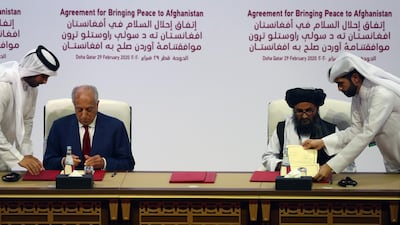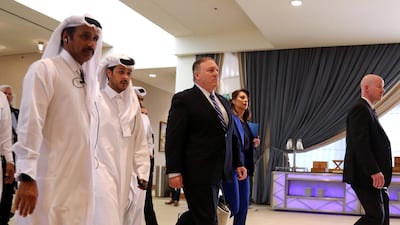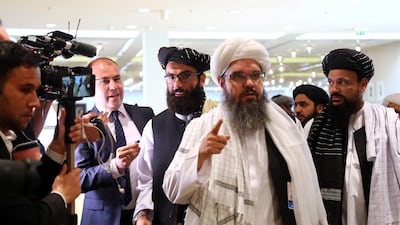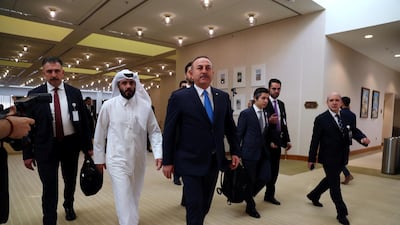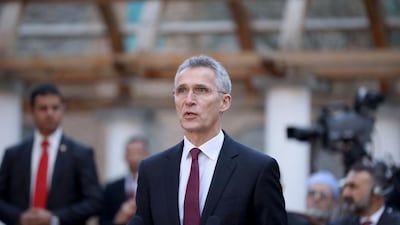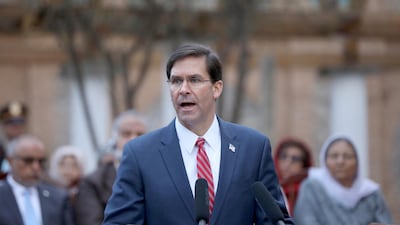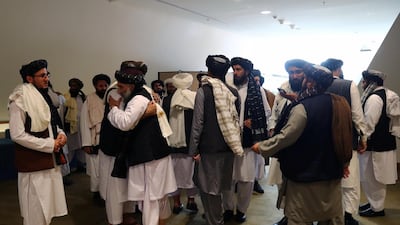The US and the Taliban signed a historic deal on Saturday that could bring an end to America’s longest war.
While conditional, the agreement includes the withdrawal of US troops within 14 months and starts direct negotiations between the Taliban and the Afghan government.
The Taliban has assured that they will cut ties with Al Qaeda and not use Afghan soil to host foreign terrorist groups. They and the Afghan government have agreed to release prisoners of war.
A week-long reduction of violence throughout Afghanistan preceded the events in Doha, the Qatari capital, where US special representative Zalmay Khalilzad and the Taliban’s political leader, Abdul Ghani Baradar, signed the deal on Saturday.
On Sunday morning, Afghanistan’s President Ashraf Ghani announced that the reduction in violence would continue, saying that he hoped it would eventually lead to a full ceasefire.
But opinions are divided throughout Afghanistan. Many say the agreement was not the end to a long war, but the beginning of a long transition.
“This was the easy part,” said Laurel Miller, the Crisis Group’s Asia Director, on the deal signed on Saturday.
“The negotiations among the Afghan parties, which are supposed to start in a matter of days, will have to tackle much more difficult issues of who gets to wield power in the country and how the government is going to be organised."
In the capital Kabul, people are equally divided
“Overall, I’ve seen that many women are nervous,” said Zuhal Atmar, 35, an independent businesswoman.
Ms Atmal set up one of the city’s most successful small-scale recycling businesses and receives backlash and threats from men on a daily basis.
“Women have suffered and worry that the Taliban might return in a similar structure we were familiar with in 1996," she said.
"Now it’s especially important that we continue with the progress that we have made over the past 20 years.”
Like Ms Atmar, many drift between fear and hope.
Mr Ghani criticised the deal on Sunday, saying that an agreement signed behind closed doors would be difficult to implement.
Under Saturday’s declaration, up to 5,000 Taliban prisoners should be released before the Afghan government starts direct talks with the Taliban on March 10.
But Mr Ghani said there was “no commitment on the release", and that it would take a long time to release even 100 prisoners.
He said he Taliban must ensure that those released do not “stand against” the government.
“It’s especially important now that everyone sticks to their commitments and that’s why the nation is holding its breath in both hope and worry,” Ms Atmar said.
Kabul University lecturer Mahmood Marhoon said: “It’s already a complicated game. The government will of course do everything to try to stay in power.”
A disputed election has left Afghanistan in political limbo, with Mr Ghani postponing his inauguration until March 9, a day before the start of intra-Afghan talks.
Disputes between him and his rival Dr Abdullah Abdullah, who also declared himself the winner, have not been settled.
“That’s why there’s uncertainty,” said Zarifa Bibi, 41, who owns a tailoring business in Kabul and has three children.
“I haven’t seen anything but war yet I’ve managed to walk the streets of this city confidently and I own my own enterprise.
"We’ve seen the Taliban before and maybe that’s why I can’t confidently embrace the future. At the same time, we notice divisions in the Afghan government that aren’t reassuring.”
It is too early to say how the Afghan government and Taliban will come to an agreement.
“They have to return from a military movement into a political movement,” Mr Ghani said on Sunday.
He said the US would mediate during intra-Afghan talks but not make not decisions. Many experienced mediators from other parts of the world would be also present, he said.
“The objective is to end the violence. I’m hopeful we can achieve it,” Mr Ghani said.
The Afghan government is finalising a delegation to take part in talks with the Taliban.
“This peace process is going to need the support of Afghanistan's neighbours and near-neighbours, as well as the US,” Ms Miller said. “That may be a tall order for a group of countries that are hardly the best of friends.”
Afghans often blame financing of the Taliban and the prolonged crisis in the country on Pakistan, its western neighbour along the Durand Line, a border that Afghanistan does not recognise.
Many say peace would have come a long time ago, if the neighbouring countries and the US had been invested in it.
Meanwhile, the US has pledged to decrease its troops from an estimated 12,000 to 8,600 in the next 135 days.
Shoaib Rahim, a senior adviser at the State Ministry of Peace, who has been involved in preparing the government's team for the Taliban talks, said Afghanistan's future could be bright after the deal’s signing.
"The Afghan government’s commitment has been clear," Mr Rahim said. "We are committed to ending this conflict and we hope the Taliban will also respect their commitment and intention for peace."
